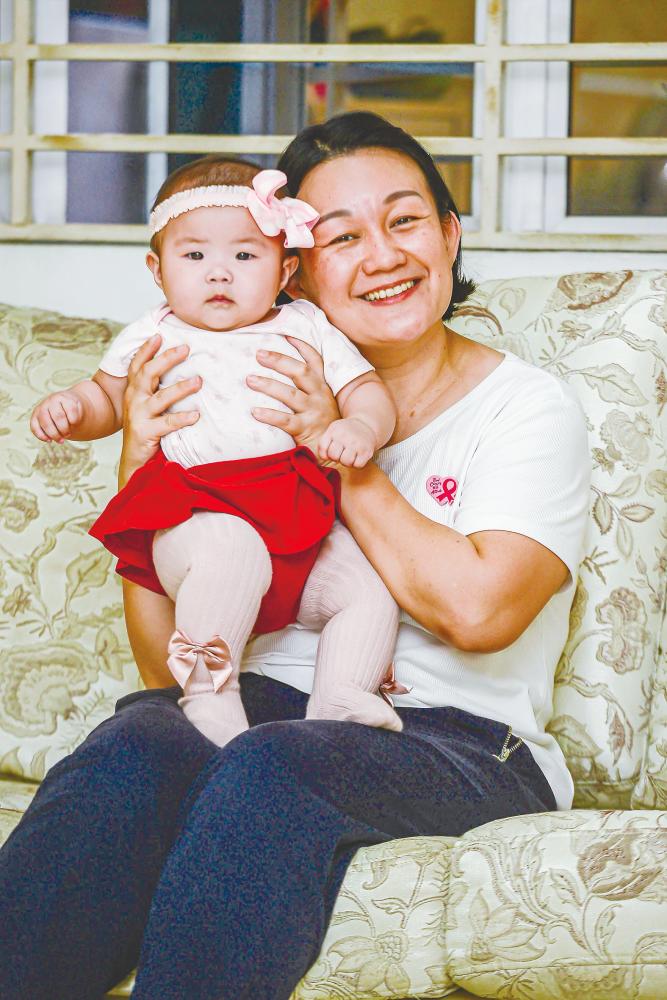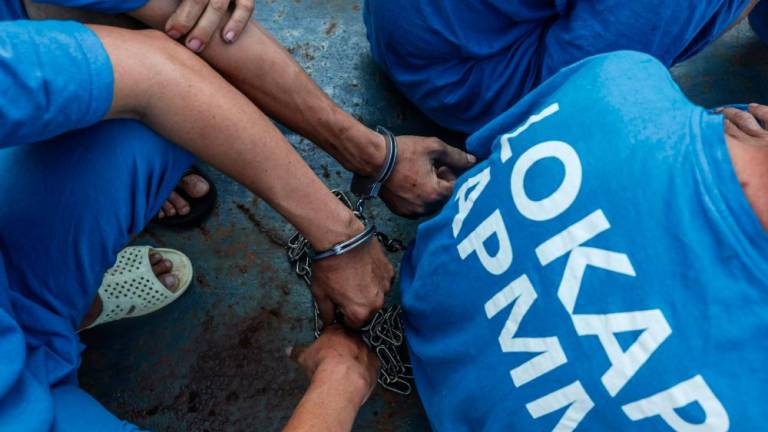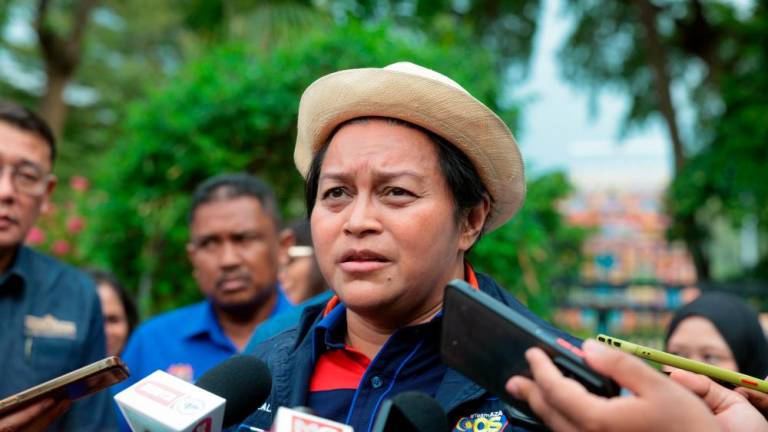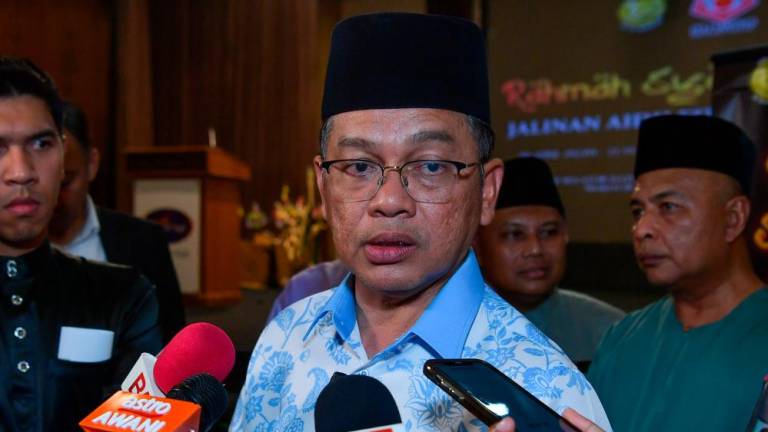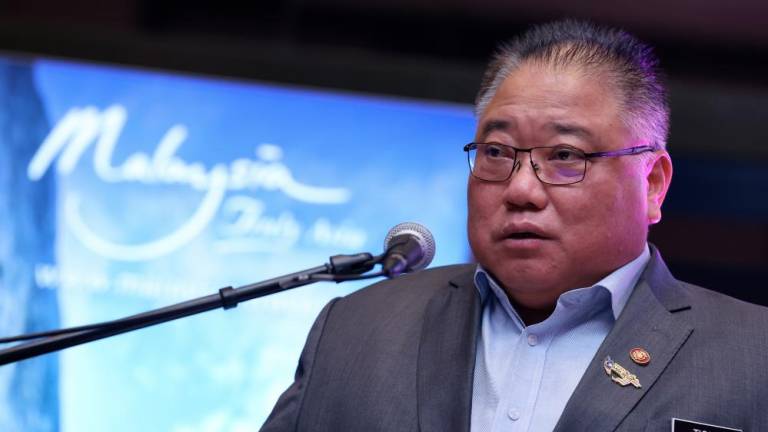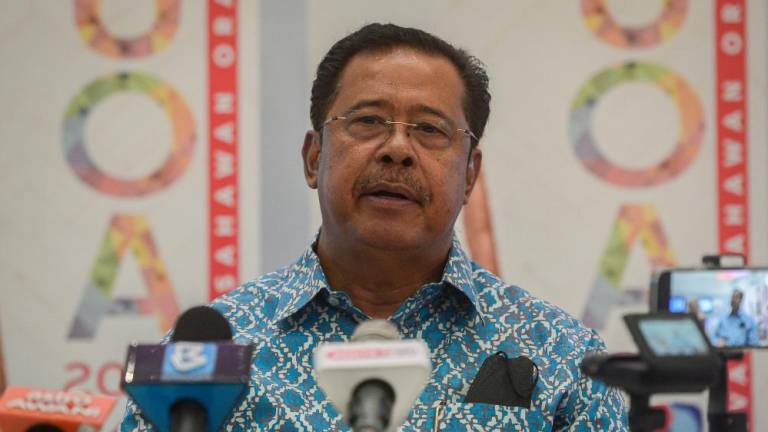In 2011, Liew Swee Lee’s life took a dramatic turn when she was diagnosed with stage two breast cancer, just six months into her marriage. Her dreams of a blissful married life and starting a family were shattered by the devastating news.
The prospect of having children seemed distant and uncertain. However, Liew did not let cancer define her. She embarked on her treatment journey, including lumpectomy, chemotherapy, targeted therapy and radiotherapy, emerging victorious as a cancer survivor.
Despite her triumph over cancer, Liew continued with regular check-ups and monthly self-breast examinations to stay vigilant. Cancer treatments, especially chemotherapy, can impact a woman’s ability to conceive.
Liew had to wait 12 years before her dream of motherhood became a reality. Earlier this year, she was blessed with her first child, a moment of pure joy for her and her family. Liew, now the secretary of the Breast Cancer Welfare Association Malaysia (BWCA), shares her remarkable journey of battling cancer and ultimately emerging victorious.
Q: How and when did you find out you had cancer?
I was on vacation, staying in a hotel with a large bathroom mirror. It was then that I noticed my right breast was noticeably larger than the other side. Upon further examination, I felt a lump.
Q: What was the diagnosis and at what stage were you at?
At the time, I was 32 years old. After an ultrasound, two breast surgeons initially believed it was fibroadenoma, a relatively common condition among women. I had the option of close monitoring or surgery. However, I was cautious and chose to have the lump removed surgically. The next morning, following the surgery, the doctor delivered the shocking news that the lump contained many blood vessels and could potentially be cancer. She instructed me to be prepared and informed me that the official report would be ready in a week. I was alone in the room when I received this news and it was an incredibly surreal moment for me.
Q: Does anyone in your family have breast cancer?
I have no family history of breast cancer. I maintain a healthy diet, am not particularly fond of meat and even participated in a half marathon.
Q: How has cancer affected your life?
Cancer has both physical and financial implications. I suffered from long-term lymphedema, a condition characterised by swelling due to the removal of lymph nodes. Financially, my insurance coverage was limited and the cost of treatment and medical expenses depleted my personal savings. To return to work as soon as possible, I had to seek employment, which was challenging due to my extended absence during treatment and my cancer history. Consequently, I switched career paths to enter a different industry.
Q: What has been the most significant change that you have had to make in your life?
The most significant change I made was in my lifestyle. I became committed to leading a healthier and more balanced life. I prioritised work-life balance and adopted an early sleep schedule. I valued my relationships and spent more time with my family, focusing on my emotional and psychological well-being. Additionally, I became a volunteer to support other cancer patients.
Q: What was the hardest or most challenging part of the journey?
The most challenging aspect was the emotional and psychological adjustment. Initially, I couldn’t bring myself to tell my family about my illness. Everything felt unreal to me until I began losing my hair after the first chemotherapy session. Fortunately, I had a strong support system throughout the entire eight-month journey. The medical team and my family played crucial roles in my recovery. We discussed treatment options and the nurses and medical staff provided unwavering support with their reassuring smiles. My mother was my primary carer and aided in my daily activities. My friends even gifted me a wig before I started chemotherapy. Peers at the Breast Cancer Welfare Association (BCWA) assured me that I would overcome cancer in the near future.
Q: You welcomed a child after being cancer-free. How did you feel about being blessed with a bundle of joy?
The arrival of my child filled me with immense fulfilment and happiness. Every life is precious. Approximately 12 years ago, the first question
I asked the doctor upon discovering my cancer diagnosis was whether I would still be able to conceive. For a long time, I felt incomplete and having a child felt like a distant dream. The entire pregnancy was filled with apprehension. My age and cancer history placed me in the high-risk category. However, I was under constant monitoring by both the medical team and my family. Today, I feel grateful and relieved. My daughter is healthy, and I sense that my life is complete and brimming with hope. Her smile is a constant source of energy for me.
Q: Can you breastfeed after breast cancer treatment?
Yes, I can breastfeed with my healthy breasts. Initially, I felt guilty that I couldn’t exclusively breastfeed my baby. However, I adjusted my perspective to realise that being a good mother cannot be measured solely by breastfeeding. I focused on excelling in other aspects.
Q: What advice would you share with those who are planning to get pregnant after becoming cancer-free?
Breast cancer should become a thing of the past, a chapter in our lives. It should not deter us from fulfilling our dreams of motherhood.



